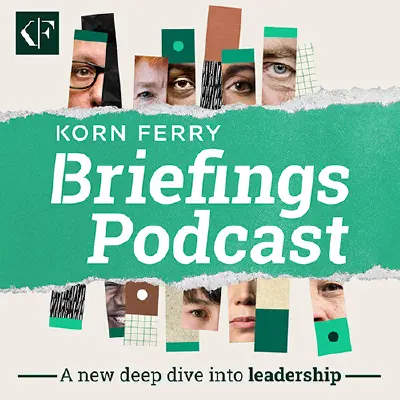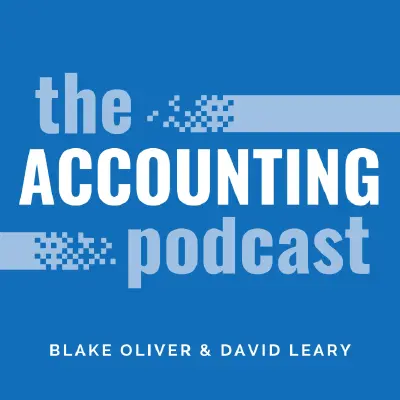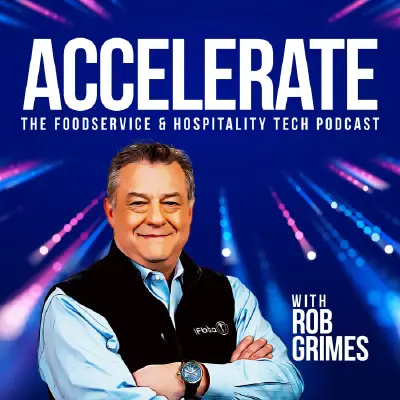Podcasts about Business News
Episodes about Business News
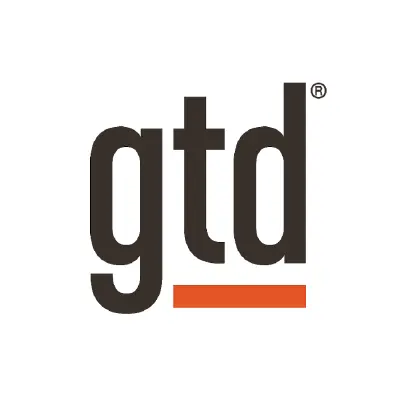
Our discussion focused on the use of artificial intelligence (AI) in your GTD practice. We talked about apps and how much intelligence they have, and how much of the thinking is still up to you. We also considered ways to give AI models more information so they can assist us better with various parts of the GTD implementation. Sign up for the GTD Newsletter -- This audio is one of many available at GTD Connect, a learning space and community hub for all things GTD. Join GTD practitioners from around the world in learning, sharing, and developing the skills for stress-free productivity. Sign up for a free guest pass Learn about membership options Knowing how to get the right things done is a key to success. It’s easy to get distracted and overwhelmed. Stay focused and increase productivity with GTD Connect—a subscription-based online learning center from the David Allen Company. GTD Connect gives you access to a wealth of multimedia content designed to help you stay on track and deepen your awareness of principles you can also learn in GTD courses, coaching, and by reading the Getting Things Done book. You’ll also get the support and encouragement of a thriving global community of people you won’t find anywhere else. If you already know you’d like to join, click here to choose from monthly or annual options. If you’d like to try GTD Connect free for 14 days, read on for what’s included and how to get your free trial. During your 14-day free trial, you will have access to: Recorded webinars with David Allen & the certified coaches and trainers on a wide range of productivity topics GTD Getting Started & Refresher Series to reinforce the fundamentals you may have learned in a GTD course, coaching, or book Extensive audio, video, and document library Slice of GTD Life series to see how others are making GTD stick David Allen’s exclusive interviews with people in his network all over the world Lively members-only discussion forums sharing ideas, tips, and tricks Note: GTD Connect is designed to reinforce your learning, and we also recommend that you take a course, get individual coaching, or read the Getting Things Done book. Ready to start your free trial?
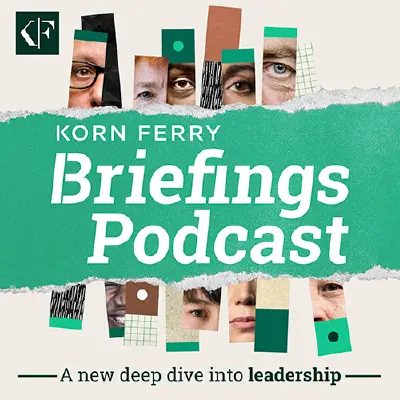
Workers who disclose that they use AI to complete tasks risk being seen as replaceable by that same AI. But not using AI means they risk falling behind. Three experts explore navigating this dilemma.
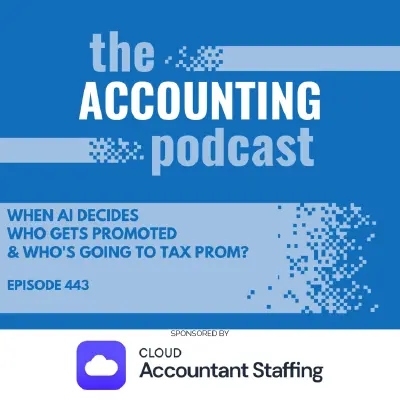
What happens when AI decides who gets promoted and who gets fired? Blake and David dive into the shocking reality that 60% of managers now use AI for HR decisions, with over 20% letting algorithms make final calls without human oversight. They explore a Stanford study revealing that tax preparers are the #1 profession seeking automation, but only for basic calendar scheduling. Plus, discover why young Americans now rank health over wealth as their top measure of success, and how this generational shift is reshaping talent recruitment in accounting.SponsorsCloud Accountant Staffing - http://accountingpodcast.promo/casKeeper - http://accountingpodcast.promo/keeperChapters(01:27) - Tax Prom: The Must-Attend Event
(04:15) - AI in HR: Promotions and Firings
(08:48) - AI in the Workplace: Automation and Worker Preferences
(13:32) - AI Adoption and Security Concerns
(18:21) - AI Training and Education in Firms
(24:01) - Armanino's New AI-Powered Data Warehouse
(33:07) - The Annoying Know-It-All Employee
(33:18) - The Perfect AI Assistant
(35:48) - Young People's Values on Success
(38:55) - Global Perspectives on Success
(41:23) - The Talent Shortage in Accounting
(43:10) - Unlimited PTO and Burnout
(46:53) - Tariffs Update
(50:42) - The Big Beautiful Bill
(01:03:52) - IRS Staffing Cuts and Refund Delays
(01:08:26) - Conclusion and CPE Information
Show Notes Half of Managers Use AI To Determine Who Gets Promoted and Firedhttps://www.resumebuilder.com/half-of-managers-use-ai-to-determine-who-gets-promoted-and-fired/Future of Work with AI Agentshttps://futureofwork.saltlab.stanford.edu/Future of Work with AI Agents: Auditing Automation and Augmentation Potential across the U.S. Workforce https://arxiv.org/abs/2506.06576 What workers really want from artificial intelligence https://hai.stanford.edu/news/what-workers-really-want-from-artificial-intelligence Big 4 Firm Discovers That Bragging About AI Efficiencies Leads Clients to Expect a Discounthttps://www.goingconcern.com/big-4-firm-discovers-that-bragging-about-ai-efficiencies-leads-clients-to-expect-a-discount/ Monday Morning Accounting News Brief: PwC Clients Ask For an AI Discount; Big 4 Firms Losing Hundreds of Partners https://www.goingconcern.com/monday-morning-accounting-news-brief-pwc-clients-ask-for-an-ai-discount-big-4-firms-losing-hundreds-of-partners-6-30-25/ Armanino planning data warehouse service, used AI for development https://www.accountingtoday.com/news/armanino-planning-data-warehouse-service-used-ai-to-help-development Bolt’s millennial founder has just ‘killed’ its unlimited PTO perk because it was actually causing burnout https://fortune.com/2025/07/02/bolt-millennial-founder-ceo-ryan-breslow-killed-unlimited-pto-burnout-mandatory-four-weeks-paid-vacation-fintech-startup/ Agentic Misalignment: AI Agents in Corporate Environmentshttps://www.anthropic.com/research/agentic-misalignment Relationships, health and financial stability are the defining priorities for Gen Z, according to new EY survey https://www.ey.com/en_gl/newsroom/2025/05/relationships-health-and-financial-stability-are-the-defining-priorities-for-gen-z-according-to-new-ey-survey 2025 Technology Perceptions Survey https://www.intapp.com/2025-tech-perceptions-survey/ Trust, attitudes and use of artificial intelligence https://kpmg.com/us/en/articles/2025/trust-attitudes-and-use-of-artificial-intelligence.html Tax Foundation Tax Prom 2025 https://taxprom.comNeed CPE?Get CPE for listening to podcasts with Earmark: https://earmarkcpe.comSubscribe to the Earmark Podcast: https://podcast.earmarkcpe.comGet in TouchThanks for listening and the great reviews! We appreciate you! Follow and tweet @BlakeTOliver and @DavidLeary. Find us on Facebook and Instagram. If you like what you hear, please do us a favor and write a review on Apple Podcasts or Podchaser. Call us and leave a voicemail; maybe we'll play it on the show. DIAL (202) 695-1040.SponsorshipsAre you interested in sponsoring The Accounting Podcast? For details, read the prospectus.Need Accounting Conference Info? Check out our new website - accountingconferences.comLimited edition shirts, stickers, and other necessitiesTeePublic Store: http://cloudacctpod.link/merchSubscribeApple Podcasts: http://cloudacctpod.link/ApplePodcastsYouTube: https://www.youtube.com/@TheAccountingPodcastSpotify: http://cloudacctpod.link/SpotifyPodchaser: http://cloudacctpod.link/podchaserStitcher: http://cloudacctpod.link/StitcherOvercast: http://cloudacctpod.link/OvercastClassifiedsREFRAME 2025 - http://accountingpodcast.promo/reframe2025Want to get the word out about your newsletter, webinar, party, Facebo...
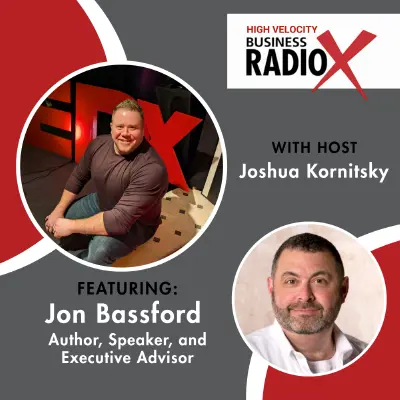
In this episode of High Velocity Radio, Joshua Kornitsky interviews consultant and author Jon Bassford. Jon shares his journey from law school to association management and startup consulting, focusing on his Growth Navigation System--a holistic, data-driven audit process that helps small and mid-sized organizations identify operational gaps and scale effectively. He discusses his book, “The […]
The post Curious Leaders: How to Foster a Culture of Innovation and Change appeared first on Business RadioX ®.

Join Restaurant Masterminds hosts Paul Barron, Paul Molinari, and Stacey Kane as they dive deep into the future of restaurant workforce management with Legion Technologies CEO Sanish Mondkar. Discover how AI is revolutionizing employee scheduling, reducing turnover by 79%, and solving the restaurant industry's biggest challenge - balancing business needs with employee satisfaction. Learn about demand forecasting, instant pay solutions, and why AI-powered workforce management is becoming essential for restaurant success in 2024 and beyond.~This episode is sponsored by: Gusto → https://gusto.pxf.io/PBN ~#1 rated HR platform for payroll, benefits, and moreWith Gusto’s easy-to-use platform, you can empower your people and push your business forward. See why over 400,000 businesses choose Gusto.RestaurantTech #AIWorkforce #RestaurantManagementGet Your Podcast Now! Are you a hospitality or restaurant industry leader looking to amplify your voice and establish yourself as a thought leader? Look no further than SavorFM, the premier podcast platform designed exclusively for hospitality visionaries like you. Take the next step in your industry leadership journey – visit https://www.savor.fm/Capital & Advisory: Are you a fast-casual restaurant startup or a technology innovator in the food service industry? Don't miss out on the opportunity to tap into decades of expertise. Reach out to Savor Capital & Advisory now to explore how their seasoned professionals can propel your business forward. Discover if you're eligible to leverage our unparalleled knowledge in food service branding and technology and take your venture to new heights.Don't wait – amplify your voice or supercharge your startup's growth today with Savor's ecosystem of industry-leading platforms and advisory services. Visit https://www.savor.fm/capital-advisory

This episode of the Woodworking Network podcast was sponsored by FDMC magazine. FDMC magazine is your vital source of information to improve your woodworking business. Whether it is keeping you apprised of the latest advances in manufacturing, helping you solve your wood technology problems with Gene Wengert, or inspiring you with case histories about successful businesses and best practices, FDMC magazine is there to be the sharpest business tool in your shop. Learn more and subscribe for free at woodworkingnetwork.com/fdmc.Woodworking Network is a home for professional woodworkers, presenting technology, supplies, education, inspiration, and community, from small business entrepreneurs to corporate managers at large automated plants.You can find all of our podcasts at WoodworkingNetwork.com/podcasts and in popular podcast channels. Be sure to subscribe so you don’t miss an episode. Thanks again to today’s sponsor, FDMC. If you have a comment or topic you’d like us to explore, contact me at will.sampson@woodworkingnetwork.com. And we would really appreciate it if you fill out the survey at woodworking network.com/podcast-survey. Thanks for listening.Intro music courtesy of Anthony Monson.

Jul 10, 2025
EP481: Seriously, IRL, What Does “No Margin, No Mission” Even Mean? With Benjamin Schwartz, MD, MBA
Relentless Health Value ❭
Balancing Mission and Margin in Healthcare: A Candid Conversation with Dr. Ben Schwartz In this episode, host Stacey Richter engages in a deep dive with Dr. Ben Schwartz to explore the phrase 'No Margin, No Mission' and its practical implications in the healthcare industry. They discuss the complex relationship between profitability and mission-driven care, the challenges of value-based care, and the role of dyad leadership. The episode emphasizes the importance of transparency, regulatory measures, and trust in fostering a balance between mission and margin. Along the way, Dr. Schwartz shares insights from his new role at Commons Clinic and addresses broader systemic issues like regulatory capture and the subjective nature of defining value in healthcare. === LINKS === 🔗 Show Notes with all mentioned links: https://relentlesshealthvalue.com/episodes ✉️ Enjoy this podcast? Subscribe to the free weekly newsletter: https://relentlesshealthvalue.com/join-the-relentless-tribe 🫙 Support the podcast with a small donation to the Tip Jar: https://relentlesshealthvalue.com/join-the-relentless-tribe 🎤 Listen on Apple Podcasts https://podcasts.apple.com/us/podcast/feed/id892082003?ls=1 🎤 Listen on Spotify https://open.spotify.com/show/6UjgzI7bScDrWvZEk2f46b 📺 Subscribe to our YouTube channel https://www.youtube.com/@RelentlessHealthValue === CONNECT WITH THE RHV TEAM === ✭ LinkedIn https://www.linkedin.com/company/relentless-health-value/ ✭ Threads https://www.threads.net/@relentlesshealthvalue/ ✭ Bluesky https://bsky.app/profile/relentleshealth.bsky.social ✭ X https://twitter.com/relentleshealth/ 08:50 Sister Irene Kraus and the origin of no margin, no mission. 10:01 Margin and mission versus profit and profiteering. 12:45 Stacey’s manifesto (EP400). 13:01 What is the broad mission within healthcare? 14:12 What is mission drift within healthcare? 15:54 EP474 with Yashaswini Singh, PhD. 17:26 Why do we struggle with balancing margin and mission? 20:47 EP455 with Beau Raymond, MD. 20:52 How does value vary? 23:18 EP326 with Rishi Wadhera, MD, MPP. 23:53 What needs to happen to balance margin with mission? 28:29 Why does everything come down to trust? 28:33 EP391 with Scott Conard, MD. 30:30 EP419 with Andreas Mang. 32:21 What are the “vectors of change” to create balance between mission and margin? 32:43 EP475 with Peter Hayes.

Jul 10, 2025
Beyond generations, beyond gaming: inside Twitch’s creative revolution
The Campaign Podcast ❭
From custom emotes to immersive live streams, this sponsored episode of The Campaign Podcast explores how Twitch is enabling brands to participate in culture firsthand versus watching it happen. Hosted on Acast. See acast.com/privacy for more information.

Jul 10, 2025
Why Most Young Adults Are Building the Wrong Life with Daniel Espy
The Wealth Without Wall Street Podcast ❭
Do you want to build a life that aligns with your values and dreams? Today, Russ and Joey welcome Daniel Espy back to the show to discuss why many young adults are building the wrong life. Through his own life experiences and mentoring, Daniel challenges the common question, "What do you want to be when you grow up?" Instead, he encourages young people to consider what kind of life they truly want to build and how to approach life with purpose, autonomy, and a balanced approach to time and money. Listen to the full episode to learn how to reshape your future and begin building a life that aligns with your goals.Top three things you will learn: -The importance of asking, "What kind of life do you want to live?"-Why financial freedom, purpose, and time autonomy need to align for true happiness-How young adults can rethink career choices to prioritize a fulfilling, balanced lifeAbout Our Guest:Daniel Espy didn’t follow the traditional path to entrepreneurship. After years serving as a pastor and missionary, he transitioned into the world of e-commerce and built a thriving Amazon business rooted in faith, service, and financial freedom.Daniel founded Crown Rights Investing to help others design lives of purpose, margin, and Kingdom impact using business as the vehicle. He believes that building an online business, such as Amazon FBA, isn’t just about replacing income–it’s about reclaiming your time and aligning your work with your calling.Disclaimer: The opinions expressed on this podcast are solely those of the hosts and guests and do not constitute financial advice. Always consult a licensed professional for financial decisions.This episode is sponsored by a podcast show partner. We may receive compensation if you use links or services mentioned in this episode.The hosts may have a financial interest in the programs or services mentioned in this episode.Connect with Daniel Espy:-Website - https://wealthwithoutwallstreet.com/crownrightsBook Your Free Passive Income Game Plan Session:-https://wealthwithoutwallstreet.com/freecallInvest Like a Billionaire Podcast:-https://thebillionairepodcast.com/Want to raise millionaire kids? Watch how Sharran Srivatsaa — former Goldman Sachs banker turned entrepreneur and investor — is building a generational wealth system with his kids, step-by-step. -https://go.wealthwithoutwallstreet.com/millionaire-kidsTurn Active Income Into Passive Income:-https://wealthwithoutwallstreet.com/piosWealth Without Wall Street New Book:-https://wealthwithoutwallstreet.com/newbookJoin Our Next Inner Circle Live Event:-https://www.wealthwithoutwallstreet.com/live-Promo Code: PODCASTIBC Webinar:-
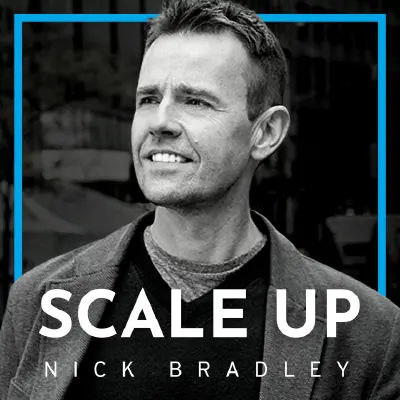
Jul 10, 2025
How Elite Private Equity Firms Scale Operations - And How You Can Too
Scale Up With Nick Bradley ❭
Nick examines the technical yet crucial topic of how elite Private Equity firms effectively scale business operations. Drawing from his extensive experience in Private Equity and entrepreneurship, Nick highlights the significant differences between traditional business growth strategies and those employed by top firms like KKR and Blackstone
KEY TAKEAWAYS
Private Equity firms succeed not just by acquiring businesses at low prices but by executing operational improvements effectively. Founders can adopt similar strategies to enhance their business operations and drive growth.
Establishing a structured 100-day plan can help business owners identify hidden value, design efficient organisational structures
Successful Private Equity firms emphasise systemisation at scale, creating streamlined processes and centralised tech stacks.
Effective leadership is crucial for driving value. Business owners should assess their teams regularly and be willing to replace underperforming leaders to ensure the execution of their growth strategies.
BEST MOMENTS
"The real pros, they obsess over how to run them once they own them."
"You do not need to sell to Private Equity to scale like Private Equity."
"If the team that's inherently brought in can't deliver the value creation plan, then they're replaced."
"In Private Equity, growth isn't left to hope, it's precisely engineered, it's methodical."
VALUABLE RESOURCES
Scale Your Business Beyond 8 Figures - Watch This Video: https://go.highvalueexit.com/scale-beyond
Exit Your Business For Millions - Download This Guide: https://go.highvalueexit.com/opt-in
Nick’s LinkedIn: https://highvalueexit.com/li
Nick Bradley is a world-renowned author, speaker, and business growth expert, who works with entrepreneurs, business leaders, and investors to build, scale and sell high-value companies.
He spent 10+ years working in Private Equity, where he oversaw 100+ acquisitions, 26 exits, and over $5 Billion in combined value created. He has one of the top-ranked business podcasts in the UK (with over 1m downloads in over 130 countries). He now spends his time coaching and consulting business owners in building and scaling high-value business towards life-changing exits.
This Podcast has been brought to you by Disruptive Media. https://disruptivemedia.co.uk/
